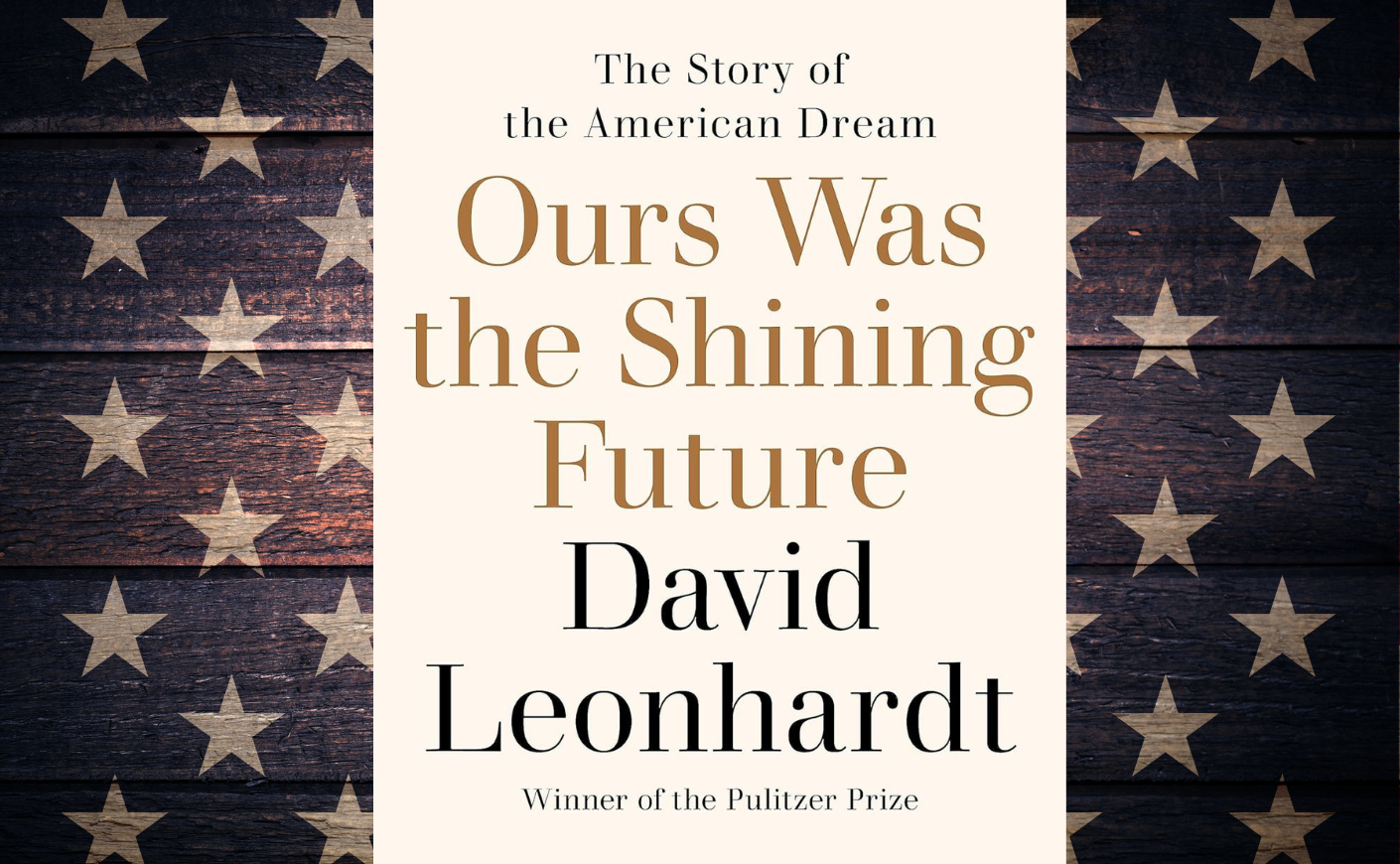We’re all familiar with the story of the American Dream: Anyone with a persistent work ethic should be able to pull themselves up by their bootstraps to achieve a comfortable life. But as we look around at our friends and family, declining living standards have seemingly become the norm for most of us. What, you may ask, happened to the dreams of home ownership, entrepreneurship, affordable education, and all the other hallmarks of a standard American life?
David Leonhardt’s new book, Ours Was the Shining Future: The Story of the American Dream, delves into the complicated story of how we ended up where we are now. To break down the ins and outs of the American economy, Katie sat down with Leonhardt for an episode of this season of her podcast Next Question. While the full interview won’t be released until later this year, we’re sharing a preview to celebrate the launch of the new season. In this excerpt from their conversation, they discuss unions, corporate greed, and a very surprising anecdote about Mitt Romney’s father that demonstrates just how much our culture has shifted.
Katie Couric: What happened to unions? Was it deregulation? Was it a new attitude about capitalism? How did unions fall apart? Did they overreach?
David Leonhardt: Yes, they did overreach. A lot of union leaders actually cared less about continuing to build a movement and more about their own immediate members. They didn't understand that if they cared only about their immediate members rather than attracting new union members, eventually the labor movement would shrivel, which is exactly what happened. So union leaders absolutely overreached, I tell some of that story in the book — they deserve significant blame.
Also, the government became quite hostile to labor unions. If you don't have the government playing referee, it's a question of whether a single corporation can prevent a bunch of individual workers from joining a union; the answer is almost always yes. Look what Starbucks has done recently. When people organize at a shop, Starbucks somehow finds lots of little violations among the people who decided to join a union. Starbucks schedules [those employees] for really bad shifts or says, “We need to let you go.” There are lots of ways to make sure that unions don't form, sometimes within the rules. The government stopped playing a version of an impartial referee or judge and really let corporations shrink unions.
Union's overreach, but I think it's important to point out that corporations got greedy, right? That was a big factor too. They didn't necessarily want to pay people fair wages. They wanted to make sure their quarterly profits were good for their shareholders. The whole balance of power really shifted.
It did. When you talk about greed, that's really a form of culture. And culture is hard to talk about because it's amorphous, right? It's people's attitudes, and you can't necessarily pass a bill that changes the culture. But I really emphasize the importance of culture in the book, because I don't think the corporate executives of the past were morally superior to the corporate executives today. But they did behave differently because the culture was different. I mean, Mitt Romney's dad, George Romney, was the CEO of a car company in Detroit, and it hit so many of its benchmarks that he was due a huge bonus. And he went to the board and said, “I think this is unseemly. I don't think it's healthy for our country or our company to have me making so much more than any workers.”
Can you imagine any of the corporate CEOs who’re making hundreds of millions of dollars today saying their salaries were unseemly?
Again, it's not that he was an inherently better person, it's that he lived in a different, less selfish culture.









